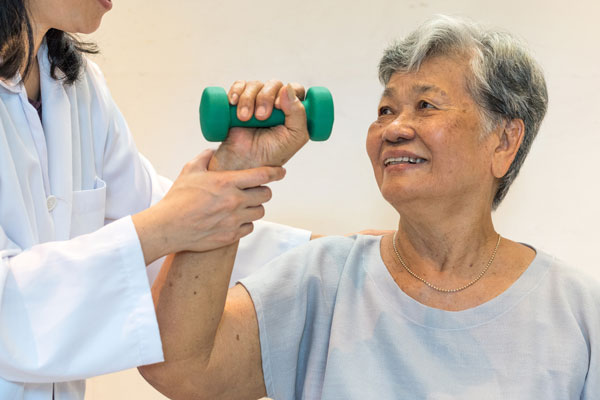
Our Passion
Our Passion:
Hui Pohala is committed to collaboration so that people of Hawaii with serious illness get the right care, at the right time, in the right place
Right Care
Right care is centered on the whole person, not just their disease. Right care improves quality of life.
Right Place
Right place means services also occur in the home and community, not just in the hospital or clinic.
Right Time
Right time means access to care is provided whenever help is needed, 24/7, by a provider who knows the person and honors their wishes.
We advocate for the best lives possible in the face of serious illness.
Guiding Principles
Excellence, Evidence-Based
Continuous Learning
Collaboration with Stakeholders
Fiscal Sustainability
Strategies to Accomplish the Mission
To serve as a catalyst and convener to improve access to high quality palliative care.
1. Build a winning team
- Determine skills and credibility needed to drive improvement
- Design and implement processes for continuous improvement
- Assure that there are clear and engaging measures of success
2. Develop resources needed to accomplish mission
- Develop 501(c)3 vehicle through fiscal sponsorship
- Identify essential information and resources needed for start up funding
- Identify additional partners who could help to sustain the work
3. Strategic learning and planning
- Research and summarize what has worked elsewhere to expand access to high-quality palliative care, especially in the community and home setting
- Identify important gaps in data, knowledge, existing plans to expand access to high-quality palliative care, additional barriers, and key strategic questions to be addressed by stakeholders
- Obtain needed data
- Develop an approach to engaging stakeholders to address these issues
4. Engage essential stakeholders to drive improvement
- Conduct a stakeholder analysis
- Engage stakeholders to reduce barriers to access to high quality palliative care in four key domains identified by CAPC and by the Hawaii Palliative Care Summit:
- Support growth of the palliative care workforce, grow clinical skills needed, and strengthen links between primary palliative care and specialty palliative care.
- Support sustainable financing of high quality palliative care
- Facilitate development of common measures of access, value, quality, and patient/caregiver satisfaction
- Grow public and clinician awareness of the value of palliative care
5. Support MedQuest’s efforts to develop a palliative care benefit
- Host a stakeholder meeting in 2021 for Medquest to present its proposed palliative care benefit/target patient population and gather stakeholder input
6. Build strong communication externally and internally

Work to reduce key barriers to high quality palliative care
Hui Pohala will catalyze systems change by organizing work teams to understand stakeholder perspectives and engage stakeholders in four key areas identified by CAPC and by the Hawai’i Palliative Care Summit in 2020 as essential to reducing barriers and expanding access to palliative care. These teams will focus on:
- Expanding and strengthening the palliative care workforce
- Growing public and clinician awareness of the value of palliative care
- Facilitating the development of a common model, standards, and measures for palliative care of seriously ill patients
- Supporting models of sustainable financing of palliative care
Preliminary plan for work teams to reduce barriers to access:
Expanding and strengthening the palliative care workforce
- Promoting palliative care skills via online or in-person training for all types of providers including physicians, nurses, social workers, and chaplains
- Leveraging/expanding existing curriculums in Hawaii professional schools
- Strengthening links between specialty palliative care and primary care providers
Growing awareness of the value of palliative care for providers
- Working with medical and specialty societies to share information
- Engaging primary care providers and specialists around the benefits of palliative care for their patients with serious illness
- Popularizing stories which reflect improved quality of life and satisfaction of patients/families who received palliative care and the providers who referred them
Growing public awareness of the value of palliative care for people, families, caregivers
- Reviewing CAPC research on messaging, then promoting clear and simple messages, identifying and using secondary messages for more precise focus on target audience
- Customizing communication materials for specific communities
- Maximizing regional networks for community outreach
- Developing materials to inform policy makers
Facilitating the development of a common model, standards, and measures for palliative care of seriously ill patients
- Review, summarize, and share relevant literature and “model” programs
- Facilitate stakeholder dialogue to reach consensus on the essential palliative care standards including required roles, services, and functions
- Facilitate stakeholder dialogue to reach consensus on key measures of access, quality, value and outcomes
Developing sustainable financing of palliative care
- Addressing current misalignment of insurance payments
- Demonstrating the business case for palliative care
- Supporting organizational capacity to provide high quality home- based palliative care.
Summary of findings from April 2020 Hawaii Palliative Care Summit
The diverse participants who attended the palliative care Summit on April 25, 2020 strongly agreed on the pressing need to expand access to palliative care services throughout the state of Hawai‘i.
Summary of Findings
The April 2020 Palliative Care Summit was sponsored by the Hawai‘i State Department of Health, the University of Hawai‘i John A. Burns School of Medicine, (UH JABSOM), and Kōkua Mau, a statewide network to improve care for those with serious illness. The 121 participants came from 41 organizations including health plans, health systems, hospices, higher education, state and county government, and nonprofits (including AARP and American Cancer Society). Participants came from all counties and included doctors, nurses, social workers, chaplains, community advocates and administrators.
The summit provided an overview of the current state of palliative care in Hawai‘i including descriptions of palliative care programs currently serving people living in the islands with serious illness. Program leaders shared evidence of improved patient and family experience of care, and improved pain and symptom management. Reduced hospital, ER, and acute care utilization due to high quality palliative care was responsible for significant cost savings. The summit concluded with a nearly universal call to action to expand access to palliative care statewide by reducing the current identified barriers:
- Inadequate payment mechanisms
- Lack of agreed upon standards of care and absence of consistently applied quality/value metrics
- Shortage of skilled palliative care providers
- Lack of a broadly understood definition of palliative care
- Lack of awareness of the public as well as persistent provider misperceptions about palliative care
Summit Follow up
Summit organizers heard the loud call to action to improve access to palliative care statewide. Following the Summit, organizers formed a palliative care Leadership Group, supported by a skilled project manager to grow the infrastructure necessary to drive major improvements. The Leadership Group concluded that substantially improving access will best be accomplished through building a strong statewide collaboration “all paddling in the same direction”. This collaborative effort is working to engage stakeholders to reduce barriers through four work teams. Also identified was an important opportunity to support Med-Quest’s ambition to develop a federally supported palliative care benefit. The Leadership Group decided that to optimize our chances of success, an additional organizational structure was needed and Hui Pohala was formed. Hui Pohala is an unincorporated association including JABSOM, Chaminade University School of Nursing and Healthcare Professionals, Queen’s Community & Post-Acute Care Services, and Kokua Mau, which also functions as the Hui Pohala fiscal sponsor.
Hui Pohala will host the upcoming Palliative Care Summit on Med-QUEST Palliative Care Benefit Design to be held on June 26, 2021. Med-QUEST will present its proposed draft palliative care benefit and solicit input from diverse stakeholders as part of its effort to obtain a CMS waiver to establish the benefit. Stakeholders who want to give input or work with the work teams are asked to please contact Crystal Costa, ccosta@huipohala.org or Rae Seitz, rseitz@huipohala.org.
For full Summit report: Report from the Hawai’i Palliative Care Summit – April 25, 2020
For more details of summit presentations: Palliative Care Summit 2020 – Kokua Mau
Coming later:
- History of palliative care in Hawaii
- Palliative Care 101
- Why Hawaii is well-positioned to expand access to palliative care
- Additional barriers to be addressed
- Potential Measures of Access

